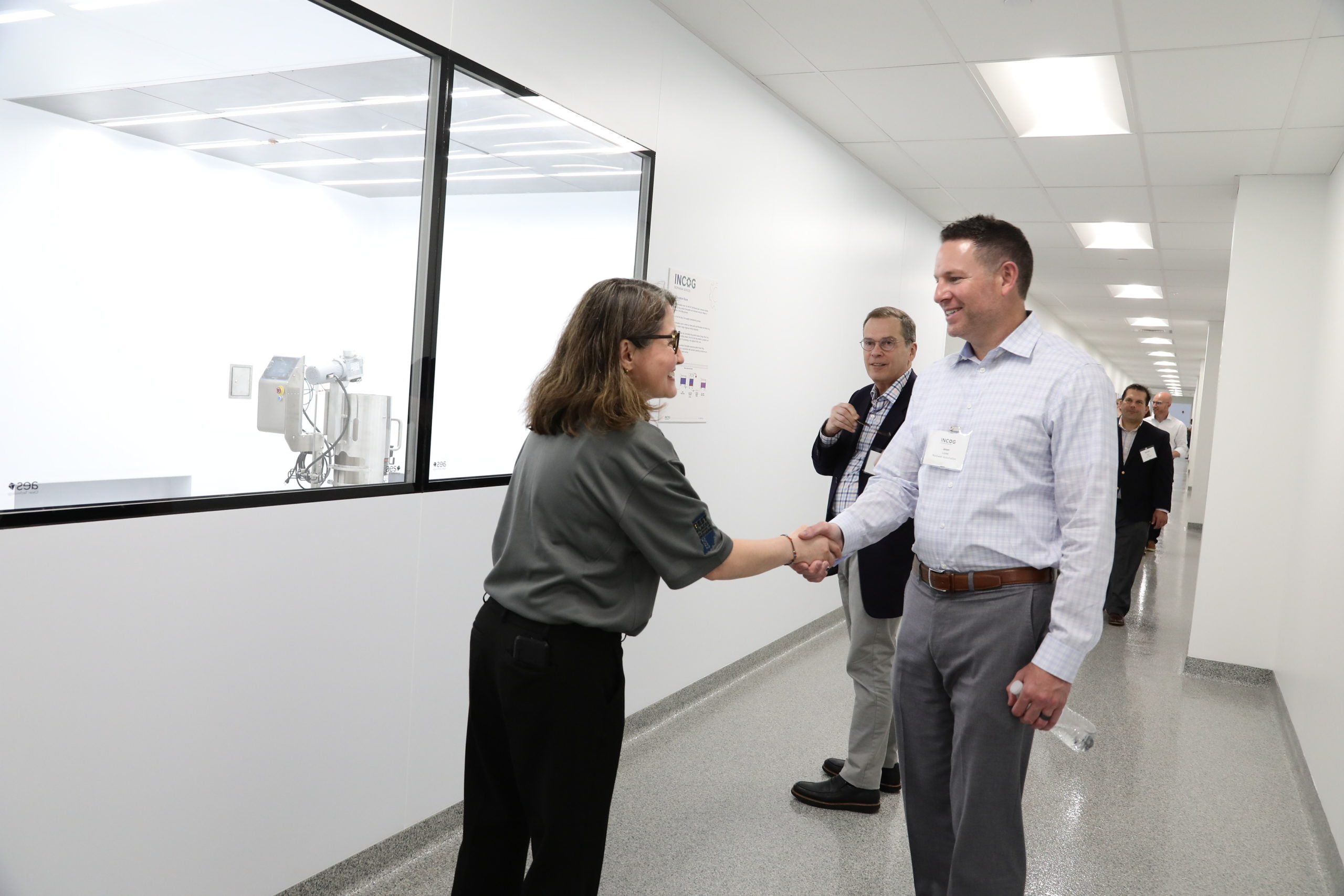What make up the five KEY differences between a good CDMO and a great one

By Karim Abdelkader
Karim brings 20+ years of extensive and diverse life sciences industry experience. Prior to joining INCOG, Karim served as the VP of Business Development of Biologics Drug Product at Catalent Pharma Solutions where he led sales integration and new business acquisition activity that contributed to significant growth at Catalent. Prior to that, he held Global Business Development, Sales, and Marketing leadership roles at Cook Pharmica, DSM Pharmaceuticals, Baxter Biopharma Solutions, Pfizer, and Cook Pharmaceutical Solutions
Although doctors Watson and Crick were not the best acquaintances before they started working to decipher the structure of the DNA molecule…through collaboration, they were able to describe the double helix that provided the framework for understanding the basic building blocks of all life. From Crick and Watson to the Wright Brothers, it’s clear that great partnerships can yield world-changing results.
Considering the pandemic response, much the same can be said for the global biopharma industry and its CDMO partnerships. According to Bloomberg data, these stakeholders collaborated to deliver more than 11.9 billion doses of COVID-19 vaccines across 184 countries worldwide in under a year.[1] For much of the biotech and pharmaceutical industry, engaging expert external manufacturing partners, in a meaningful way with a unified objective, is essential for a successful drug development, technical product transfer and commercial launch strategy.
Distinguishing a good CDMO from a great one
The injectable drug product contract manufacturing market is expected to grow exponentially over time—driven by an increasingly aging population, growing incidence of chronic diseases, innovative science and expanding bio/pharmaceutical drug development aimed at addressing such diseases. As a result, it’s easy to understand why market dynamics will continue to favor engaging with CDMO partners who have the capabilities and experience to manage and quickly respond to clients’ short-term needs while anticipating and planning for their long-term requirements.
But with CDMO capacity available in certain capabilities, limited/constrained capacity elsewhere, and moreover inconsistent customer service—understanding what sets a good CDMO partner apart from a great CDMO partner is more relevant and important than ever to create exponential and long-term value.
1. Flexibility, and lots of it
To support a variety of client programs long term effectively from end-to-end, without sacrificing quality, flexibility must be purpose-built operationally into the overall business process, and more importantly, into the CDMO culture holistically. It is important to identify a partner who is responsive and nimble enough to support a small clinical program that may be technically nuanced, while having the scale-up capabilities and experience needed for tomorrow.
A great CDMO offers outstanding flexibility and proactive, consultative customer service—even if such consultation does not benefit the CDMO immediately but creates meaningful value for the client. For example, imagine a facility that follows a five-day schedule per week (not seven) to allow for that extra time needed to address manufacturing challenges, and/or unexpected changes in client demand, versus running a tight manufacturing schedule (with limited capacity) to maximize revenue. In the later scenario, this is a recipe for disaster that ultimately disappoints clients and more importantly disrupts vital product supply to patients.
Great CDMOs schedule flexibility from the beginning to meet client needs in a responsive manner, anticipating and mitigating project risk and product demand surges sooner rather than later.
2. Maniacally focused on core competency
Good CDMOs try to be all things to all clients—spreading themselves thinly across a multitude of product dosage forms, technologies, and facilities that, as a result, do not deliver a consistent customer service experience. Great CDMOs know who they are and who they are not. A great CDMO is focused and confident in their core competency—and this is evident in their ability to consistently deliver on client commitments.
The drug development landscape and the science driving it is vast. A great CDMO is always in tune, partnering with suppliers and clients alike to better understand and stay ahead of rapidly changing demand for medicines, the delivery mechanism for such medicines, and the supply chain heavily supporting these medicines—relative to their core competency. When a CDMO achieves this, the noise is reduced/eliminated allowing the client and their needs to be the primary focus. That is when great things happen. That is when the customer experience is authentic, reliable, and consistent.
3. Experience and transparency, not just a marketing slogan
In the context of sterile fill/finish operations, any CDMO provider worth engaging is already an expert at managing a cGMP compliant facility and the processes/procedures needed to produce a quality finished drug product. However, what can make a good partner become a great partner is how effective they are at applying lessons learned that prevent repetitive errors and yield consistent right-first-time manufacturing execution.
Great partners deliver real transparency, leveraging strong communication skills and technology to ensure that clients are always aware of their project’s status—minimize surprises and foster collaboration throughout the process. Imagine having real-time visibility and transparency to the status of your project throughout the manufacturing process—whether that is via secured remote access cameras providing clients close up views of their product as it is being formulated/filled or providing Persons In the Plant (PIP) dedicated client offices with line of sight into the manufacturing operation—without charging an “extra fee” or preventing PIP access. A great CDMO informs a client of an issue sooner vs. later even when a solution is not fully in place. Many clients simply do not want to be surprised and want to be part of and collaborate on a solution to a problem.
4. Process robustness, always striving for improvement
If securing an expert manufacturing partner is central to a drug development or commercialization strategy, it makes sense that every aspect of the CDMO operation is tuned to deliver clients’ projects successfully with minimal product loss. Process robustness is one measure. For many CDMOs, working with dated, inflexible equipment translates to manufacturing inefficiencies, rework, and preventable process related errors. Good CDMOs are often experienced, that is they are experts at making their client’s projects fit within their facility/operations.
Great CDMOs accelerate well past good: straight to great by combining the experience of seasoned veterans to ensure that their operations/process fits the needs of their clients (not the other way around). This requires a fundamental understanding of the client’s needs (past, current and future), adhering to project milestones, and grasping that there is a time and a place to recommend phase appropriate process improvements relative to the overall success of a project.
5. Strong collaborators from start to finish
Smart, well-defined, and aligned objectives are often used to characterize what is needed to establish, and more importantly maintain, good partnerships. Most CDMO project managers and client CMC leads/alliance managers, tasked with executing technical project transfers, have likely experienced the anxiety of a bad collaboration—and the euphoria derived from a good collaboration. Great partners will take that anxiety off the table from the first encounter. Again, great partners deliver real transparency, leveraging strong communication skills and technology to ensure everyone is on the same page.
CDMO partners who attract and sustain the highest-performing teams also separate the great from the good. The efficiency and effectiveness of a potential partner’s teams play a vital role in a program’s success. Encouraging ownership and responsibility from every team member, a great CDMO is equally invested in the success of the program and engages with the client collaboratively. A great partner knows organizationally and operationally what works, what doesn’t work, and can visualize what’s possible. Great CDMOs have demonstrated how to engage and support the customer in a meaningful and purposeful way. Greats have the experience to put customer at the forefront of everything they do—from initial engagement to project kick-off and product life cycle management. Every supplemental bit above the good lifts biopharma companies up, keeping their programs on track during this supply constrained environment.
[1] https://www.bloomberg.com/graphics/covid-vaccine-tracker-global-distribution/
